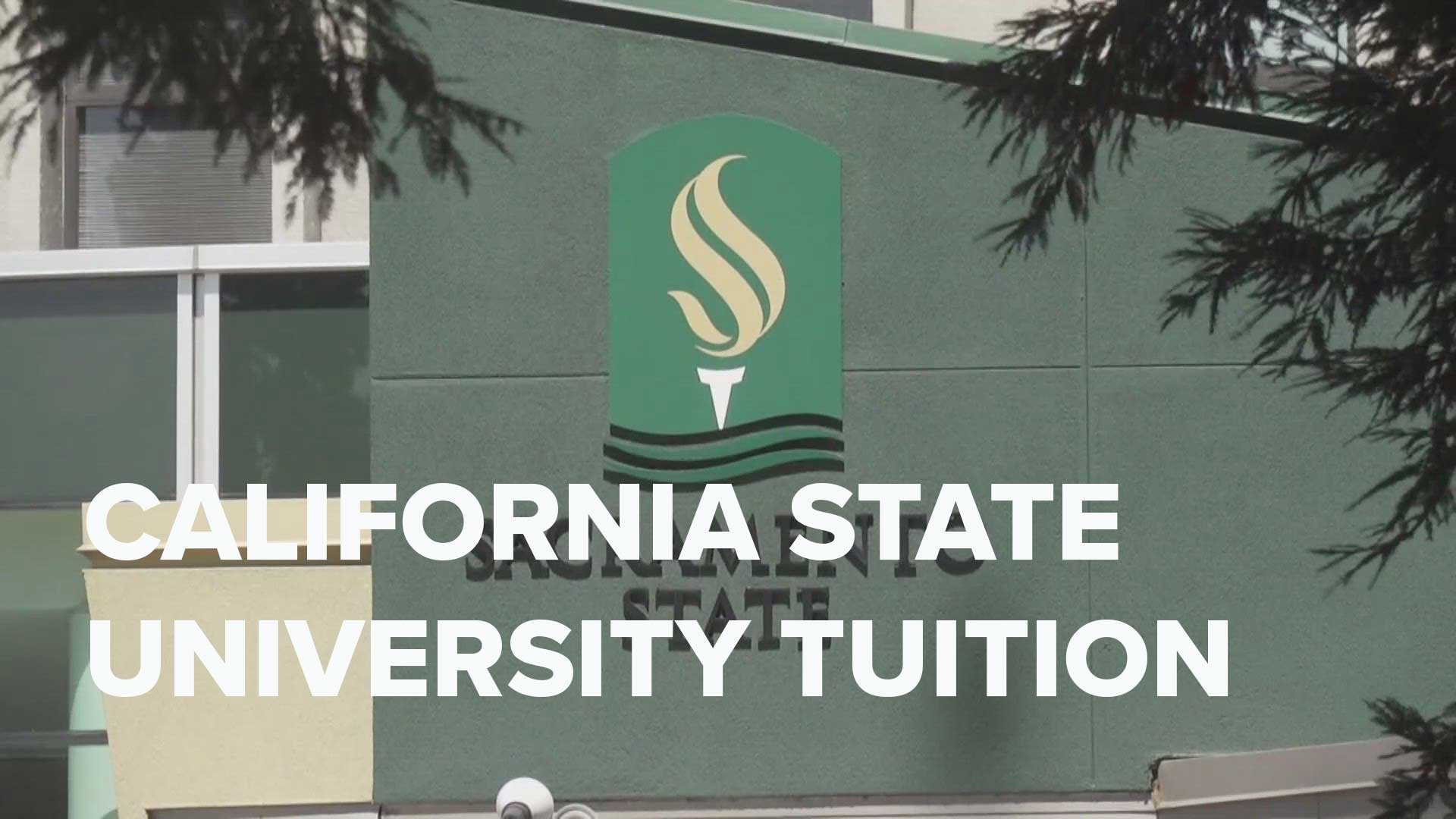CALIFORNIA, USA — The California State University Board of Trustees voted unanimously Wednesday to raise tuition for students. They said the extra money will help close a $1.5 billion funding gap.
The university’s governing board voted 9-0 to approve the increases that will start across the 23-campus system in the fall of 2024. Starting next year, CSU students will pay 6% more on tuition than they do now. The board said the hike was necessary to protect the future of the institution.
Annual tuition for full-time California undergraduate students will increase by $342 next year to $6,084. By the 2028-2029 school year, those students will be paying $7,682.
The tuition hikes are needed to provide support to students, both through financial aid and programs to help them succeed academically, university officials say. The extra revenue is also needed to give more resources to faculty and staff and maintain school facilities, according to a report about the system’s finances released in May.
The report found the system with 460,000 students, many of them minorities and first-generation college students, has enough revenue to cover about 86% of what it actually costs to meet student, staff, and institution needs, leaving it with a $1.5 billion gap.
For freshman Quentin Lipscomb, this changes the initial financial plans he had in place.
“My family, we needed the financial aid just to pay for my tuition,” said Lipscomb.
By the end of the 5 years, tuition will be almost $2,000 more.
“I’ve already got a job for summer but family is probably going to have to take out another loan,” said Lipscomb.
The move gives students at Sacramento State, like Madisyn, a lot to think about on their walk to class.
“I don’t know if we are going to be able to afford it if I’ll continue to go here or if I’ll have to go somewhere else,” said Madisyn.
Madisyn will feel the full impact of the five-year increase because as a nursing student, she will be in school longer.
“Free Application for Federal Student Aid, FAFSA, already doesn’t cover a lot, at least for me, it's kind of hard to pay for college as is with the increase. It actually really stressed me out when I found out,” said Madisyn.
Students said the stressors include the cost of tuition, inflation and other required costs like textbooks.
“They are still about $70, $80 each and I commute here right now because trying to live here is really expensive so I commute and I probably spend 200 dollars a week on gas just for college,” said Madisyn.
Many are left with few choices; Madisyn said those include taking out more loans, being in more debt and struggling more to pay them off.
Sacramento State University’s new president, J. Luke Wood, told ABC10 he’s ready to get to work to help students where he can.
“What can we do as a campus to curb the impact that can potentially have on students... we are focused on increasing scholarships for our students,” said Wood.
There was a last-minute attempt during Wednesday’s meeting to have the tuition increase end after three years but it was unanimously opposed.
CSU’s chief financial officer warned the board if they rejected this five-year deal it would force the 23 campuses in the CSU system to lay off thousands of professors and cancel classes.
Officials said tuition has only been increased once in the last 12 years — a 5%, or $270. Meanwhile, inflation grew by 39%. The university receives 60% of its funding from the state government, and the rest comes from tuition.
The five years of the tuition increase will generate a total of $860 million in revenue. Of those funds, $280 million will be committed to financial aid, school officials said.
Steven Relyea, the university system’s chief financial officer, told trustees the tuition increase will help narrow the deficit gap but it won’t close it.
The tuition hikes won't affect about 276,000 undergraduates who have their tuition fully covered by financial aid because of their family's low income. Several trustees said they worry about the other 40% of the undergraduates, or about 184,000 students, who don't qualify for financial aid and who will face increased tuition. But they agreed they saw no other alternatives to stabilize the system's finances.
“We cannot survive unless we take action. No one wants to do this but it is our responsibility,” said Jean Picker Firstenberg, a CSU trustee.
State Superintendent of Public Instruction Tony Thurmond does not support the tuition increase and believes it will place an unnecessary financial burden on students.
WATCH ALSO:

















